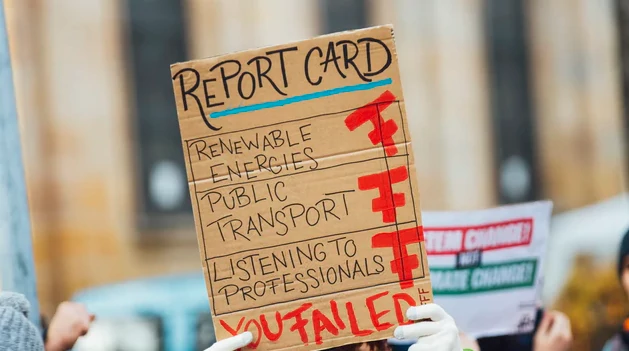Regressive taxes, commodification, and theft
The current economic crisis has led to unprecedented government spending. This spending is funded by borrowing or by 'printing money' (which has an effect similar to borrowing) to support furloughed and unemployed workers to the tune of roughly $80 billion and to subsidize corporate revenue. This has been necessary to prop up basic economic activity in an attempt to delay the impact of the economic consequences of the recession. Unfortunately, neoliberal policy makers are already trying to convince us that giving public services away to private interests is the only way to pay for this debt.

Introduction
In addition to government spending, central banks have promised direct purchasing of bonds on the open market at "whatever it takes" levels to keep the markets liquid.
However, as with all actions by the government and central banks involving spending money, there have been side effects. These include "bubbles" forming in certain equity markets, large shifts in activity in property markets, investments in online services resulting in bubbles, and a focus on corporate bond fundamentals. These have brought attention to the previous activities in the financial markets on debt rates of corporations (zombie companies that have more debt than revenue), and to low levels of investment in the real economy.
Another effect of all this borrowing and spending is the build-up of debt – both corporate and government debt. The response to this growing debt from centrist liberals and the right wing is to push for the only policy they understand after 40 years of neoliberalism: more cuts to public services and privatization.
As outlined in previous articles, neoclassical and liberal economic policy shops and political parties are already gearing-up for an attack on public services. The fact that much of this money went to profit subsidies for private business has been conveniently forgotten and the focus will be on government spending alone.
Part of the way these attacks will come is through changes to the way that we pay for services. These changes can be seen through the lens of shifting taxation and the introduction of fees.
These regressive changes include:
- Attacks on fixed income receivers
- Pension plan changes
- Transfer Taxes
- Fees
- Tuition fees
- Social impact bonds/social finance
- Ability to pay
- Tax surcharges
- Loss of public ownership through sale and lease-back
However, there is more at stake than simply regressive taxation to pay for debt and the resulting inequality in access that results. The real prize for capitalists is the privatization of public services.
In this short series we will show how each of the changes above – which seem like surface changes to the way we pay for services – is actually structured as a wealth transfer to private corporate interests away from the public. In turn, the resulting structural inefficiencies compound the negative impact on public spending and make regular workers poorer while enriching capital.
Doubling-down on neoliberalism
For 40 years, the favourite policy of the capitalists to make profits has been the privatization of services that used to be public and not-for-profit. Known as commodification, this move takes something that was not in the private market and turns it into a commodity for the private sector to buy, sell, and rent out.
The story goes that capitalism as a system is good at innovation, though many doubt this narrative. But commodification is not at all the kind of innovation we are used to hearing about. The vast majority of profits from commodification are actually a result of the simple transfer of wealth from the public commons to private capital.
The commodification of public services and spaces actually results in private rent extraction, as well as to cuts to public services that continue to support profit extraction after the transfer is complete.
This is nothing like the investment- and production-driven profits that many think of when we mention modern capitalism (for example, paying workers to build cars and selling the cars). It is really just a type of theft – or, rather, a give-away – of publicly owned assets to someone who wants to make a buck. It is a bit like buying low and selling high, only with the "low" here being nearly free. Profit extraction from newly privatized public services is a form of parasitic mercantile capitalism that has more in common with imperialism and colonial plundering than "industrial" capitalism.
The only "innovation" that really occurs through this process is the various innovative ways that capitalists and politicians carry out privatizations and create a fee/price structure and pseudo-market so that it does not look like a thief just stole your car and is now trying to sell it back to you. Sure, it looks like the car is cheaper than the one you bought, but only if you forget he stole it from you in the first place.
Privatization is grand theft auto, but on a much larger scale.
